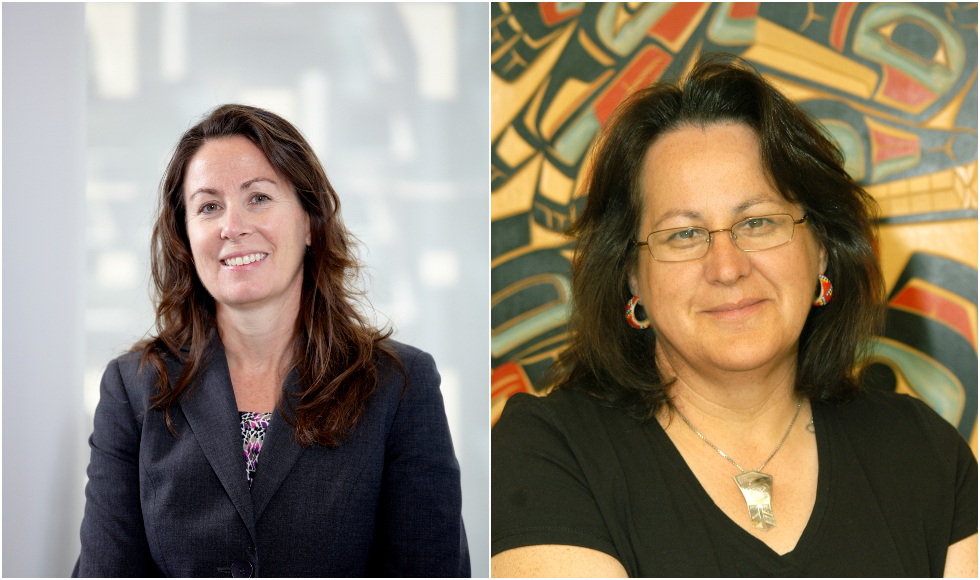Indigenous knowledges and community practices help protect against COVID-19, report finds

Maureen Dobbins, left, is the director of the National Collaborating Centre for Methods and Tools and a professor in McMaster's School of Nursing. Margo Greenwood, right, is the academic leader of the National Collaborating Centre for Indigenous Health and a professor of First Nations Studies and Education at the University of Northern British Columbia.
November 3, 2020
Indigenous knowledges, practices and community strengths are helping protect Indigenous families and communities around the world from COVID-19.
Authors of a new report say protective factors include communities’ strengths, ways of caring for family and community members, Indigenous knowledges and practices, as well as community-centred communications and community-driven and controlled public health measures.
The review of available evidence was completed through a partnership between the National Collaborating Centre for Methods and Tools (NCCMT) hosted at McMaster University and the National Collaborating Centre for Indigenous Health (NCCIH) hosted at the University of Northern British Columbia. Both centres are funded by the Public Health Agency of Canada.
The review is from the NCCMT’s rapid evidence service, which provides high quality summaries of COVID-19 evidence to support public health professionals and policy makers in making evidence-informed decisions.
A key factor emerging from the evidence is community driven and controlled public health actions. As well, the review found that isolation is a traditional practice for some Indigenous communities that has increased relevance in response to the pandemic, and many communities are also providing places and spaces for individuals to self-isolate by living on the land or in housing within the community for people who are isolating.
Using kinship practices and traditional ways of caring, delivered through distanced and sometimes virtual means, Indigenous peoples are caring for family and community members, including special attention for elders, children, those with health concerns and those in quarantine.
“We used a strengths-based approach which means we looked to see how strengths help protect Indigenous peoples and communities in Canada and internationally from COVID-19 and its impacts,” said Maureen Dobbins, NCCMT scientific director and a professor for McMaster’s School of Nursing.
“Evidence from published literature and Indigenous organizations has consistently shown the resilience of Indigenous communities despite structural inequities from historic and ongoing colonization.”
Margo Greenwood, academic leader of NCCIH and professor of First Nations Studies and Education at the University of Northern British Columbia, pointed out that while a distinctions-based approach, which looks at issues for each of the First Nations, Inuit and Metis peoples, would have been particularly ideal in Canada, it was found there is virtually no data specific to these groups and COVID-19.
She added, “Many of these findings have relevance, if adopted and evolved, at locally distinct First Nations, Inuit and Metis communities. This review offers an opportunity to draw on our past to inform today.”
The review, which included an evaluation of one study, 18 expert opinion sources and 22 general media sources, may be found here.
Dobbins said the review provides an important first step in understanding the role of protective factors among Indigenous peoples and communities against the impacts of COVID-19.
“However, this review also illustrates the need for future research given the relationships between specific protective factors and COVID-19 outcomes remains under-explored at this time,” she said.


